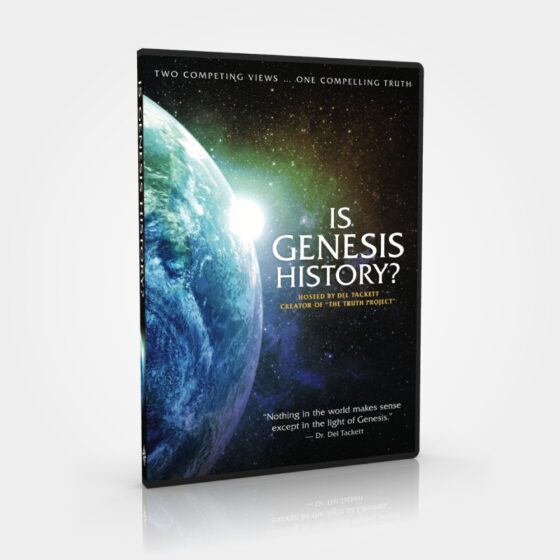
This is the first of five posts dealing with the question of ‘The Age of the Earth and the Bible.’ It is taken from the Is Genesis History? Bible Study available in our store.
“I have no gospel unless Genesis is history.”
– D. Martin Lloyd-Jones
When we talk about the ‘age’ of something, we imply it has a specific history. For instance, if a man is 95 years old, he has lived through a series of events quite different from those of a 10-year-old boy.
Age indicates history.
This means when we talk about the age of the earth, we’re really talking about the history of the earth. According to Genesis, it is a history that begins with specific events that lead eventually to Jesus Christ.
In explaining this redemptive history, the prophet Isaiah is very clear: God controls every moment of time in order to glorify Himself by redeeming a people through the work of His Son. He says:
“I am God, and there is none like me, declaring the end from the beginning and from ancient times things not yet done, saying, ‘My counsel shall stand, and I will accomplish all my purpose,’… I have spoken, and I will bring it to pass; I have purposed, and I will do it.” (Isaiah 46:9-11)
God’s providence ensures all of time and history serve His particular ends. Every moment is consequential and important because He is ‘accomplishing all His purpose.’ The Bible is ultimately a book of history: it is through the events of real history that He brings salvation to us and glorifies Himself through it.
This is why one’s view of the age of the earth matters to the gospel.
Six Essential Doctrines Connected to the History of the Earth
If one replaces the Biblical timeline of thousands of years with the conventional timeline of billions of years, one must accept all the new events that go with that new timeline — events which necessarily displace Biblical events. This displacement inevitably affects the doctrines that rely on those events.
For example,
- God has accurately revealed the history of the universe and man’s role in it. To allegorize or de-historicize any of those historical events is to question the ability of special revelation to speak clearly about history.
- God created the entire universe fully-functional in six normal days. To greatly extend the length of time and significantly alter events transforms the doctrine of creation into a slow, indirect, and death-filled process; this, in turn, transforms one’s view of God and His nature.
- God formed Adam and Eve in His image at the beginning, thereby ensuring His image would be reflected somewhere in the universe at every point in its history. If one places long ages before man’s creation, it means God’s image has been missing from creation for almost all of its history.
- God cursed the creation as a result of Adam’s sin, bringing death and corruption into a very good world. To say that there were billions of years of corruption and death before Adam’s sin means God created a universe filled with death. This not only changes ones view of the fall, but of the nature of our redemption in time.
- God judged the entire world with a global flood, killing all land creatures, birds, and people. The idea of a local flood not only violates the history revealed in special revelation, but it denies the past reality of global judgment in space and time, thereby casting doubt on the universality of the judgment to come.
- God providentially controls every moment of time and history, starting with the first creation and the fall, guiding it to redemption in Christ, and ushering everything toward the new creation. If the timeline of the universe is not the timeline of the Bible, then God’s providence is emptied of its meaning and purpose: it takes responsibility for billions of years of emptiness, silence, and death.
It is possible that many Christians do not realize how the age of the earth affects key doctrines related to the gospel. This has not always been the case. For most of the history of the church there was an understanding that one cannot change the history recorded in the Bible without changing the doctrines taught in the Bible.
Nevertheless, there are some Christians today who say the Bible does not even speak to the age of the earth. This view, however, would surprise the vast majority of interpreters throughout the history of the church.


